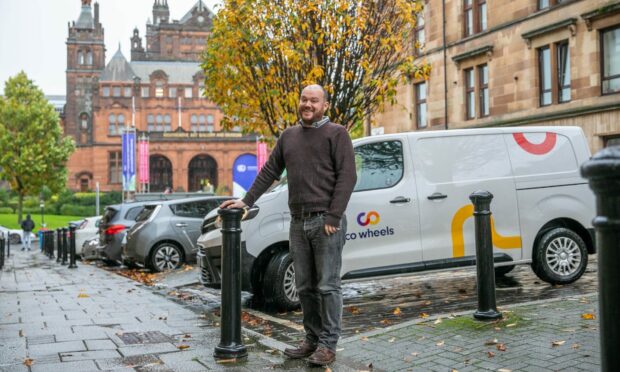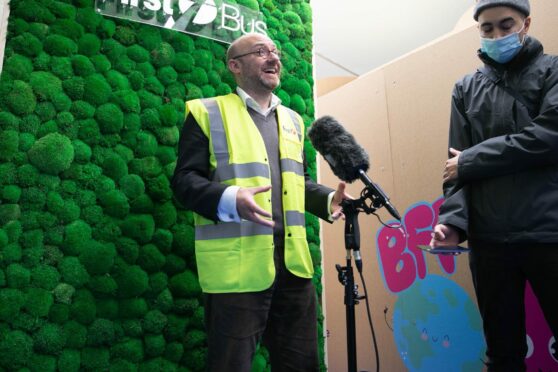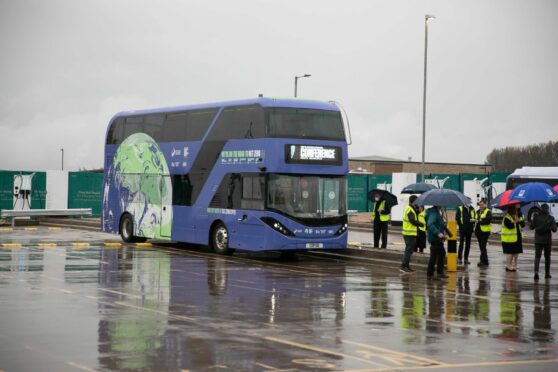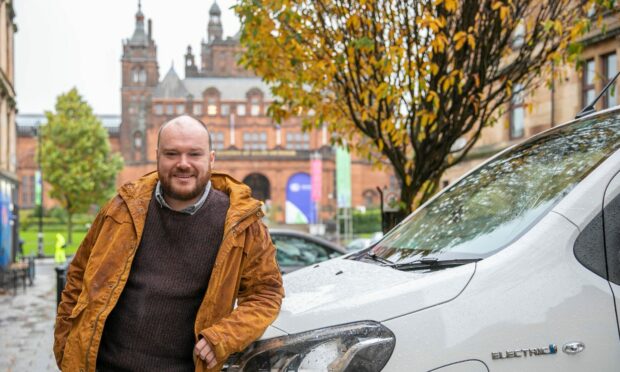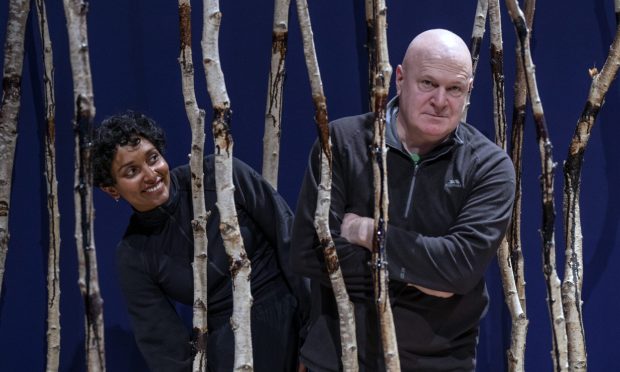Scottish Green co-leader Patrick Harvie has urged people to remain hopeful as our climate crisis road trip reached its conclusion in Glasgow.
We presented a short video to the Scottish Government minister for active travel and zero-carbon buildings as the delegates began to arrive in the city for COP26.
From John O’ Groats to Callander, we spoke to people on the streets to find out their environmental concerns and expectations for the global climate summit.
It was a mixed-bag of reactions, but there is a feeling among those we spoke to that COP26 is the last chance for world leaders to get their act together.
Beyond that, it will be too late to avert the worst of the climate crisis.
Some young people admitted giving up or feeling anxious about their future.
People must resist ‘feeling of complacency’
Reacting to the clips, Mr Harvie said he can “really identify” with a lot of the comments.
“In particular, a recognition not only that this is late in the day to be taking the actions the world needs, but that this is potentially the last chance to make the right choices,” he said.
“But there’s also a real sense of anxiety about ‘is there still hope?’
“I think that’s one of the big dangers of events like COP.
“They are totally necessary, we need to get people together to make these decisions, but one of the dangers is what happens afterwards.”
He fears there may be a “feeling of complacency” if a “good deal” is struck, which could lead to a sense the climate crisis has been dealt with at COP26 and no further work is required.
Mr Harvie said it is vital people avoid that or a sense of defeatism if talks are not constructive.
“We need a global deal that actually commits to the actions that have been waiting far too long to be taking.
“It should have happened 20, 30 years ago, frankly, some of the changes that we need to be making.”
Why does Mr Harvie remain hopeful?
He said a mixture of local, national, and international actions are showing there is a desire to tackle the issue.
“Climate denial has never really been a significant problem in Scotland,” he said.
“That’s rare for a fossil fuel-producing country. We’re coming to the end of that industry.
“We need to end that industry in a way that invests in new industries that will create prosperity for the future.
“I think the way to avoid defeatism and despair, and that is a real risk, is to show and invest in the kind of solutions that operate at a local level.
“When communities come together and put their own ideas into practice and say how they want their society and community to change… they can be incredibly creative, powerful and inspirational.
“That, I think, is where hope can come from.”
What is Glasgow like as COP26 begins
In a word, hectic.
Driving around the city is a headache, with roads around the Clyde closed.
Avoid it if you can.
But aside from that, there is a buzz in the city as world leaders descend on the city.
Helicopters in the sky give a sense of the importance of the event.
And security are not taking things lightly. We attracted the attention of the police while filming our road trip conclusion at Kelvingrove Museum.
They were perfectly satisfied once we explained who we were and what we were doing, but the police and security personnel are taking no chances.
What did we learn on our climate crisis road trip?
As our climate crisis road trip comes to an end under the COP26 banners in Glasgow, there are a number of takeaways.
Several young people expressed deep fear their future is not guaranteed.
It’s difficult to look into the eyes of someone in their late teens or early 20s when they tell you they won’t have kids because of a worsening environment.
Or they expect their family home to be uninhabitable because of flooding.
There is also a cynicism among people of all ages that COP26 will end up just being a “talk shop”.
They don’t expect politicians to act on their promises.
But we also found hope on our trip.
Whether that’s the work to restore peatlands in the Highlands or tree planting at Glen Finglas, there are projects taking place all over the country – and the world – where people are taking matters into their own hands and doing their bit to protect the environment near them.
If that spirit can spread, then maybe Mr Harvie is right to remain hopeful.
